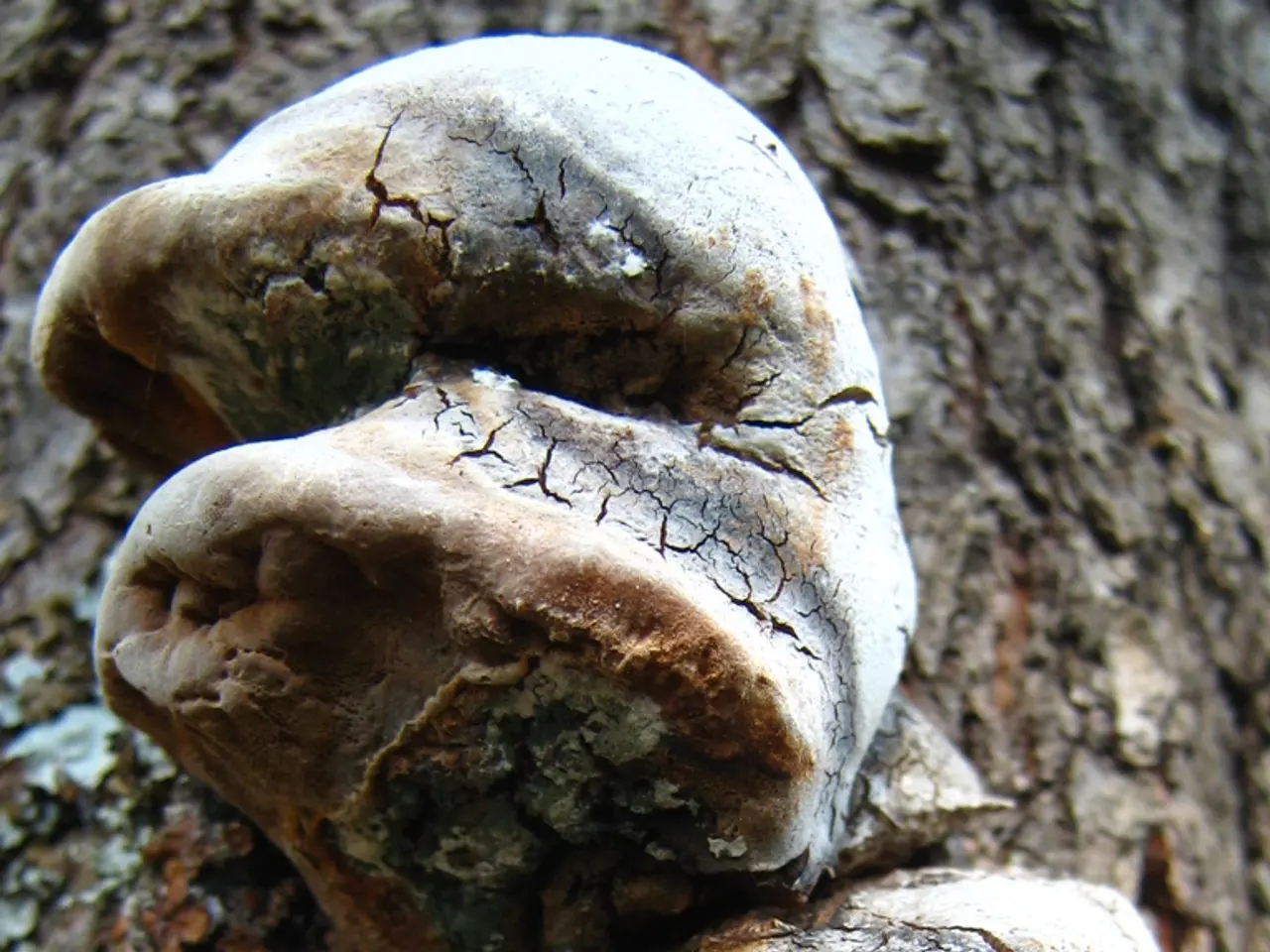Trees harbor a staggering 1 trillion microbes, unveiled by American researchers
In the intricate web of life, trees form a vital connection with their microbial counterparts, hosting complex communities of bacteria, fungi, and viruses within their wood. These microbiomes, it turns out, play a fundamental role in tree health and forest ecosystems [1][3][5].
Each tree, on average, harbours approximately one trillion microbial cells, uniquely adapted to different tree species and wood regions. The heartwood, a region rich in nutrients and low in oxygen, supports anaerobic microbes that contribute to biogeochemical changes, while the sapwood, abundant in oxygen, hosts aerobic microbes that actively cycle nutrients [1][3][5].
These microbes influence processes such as nutrient exchange and carbon storage, impacting not only the tree’s health but also broader forest ecosystem functions. For instance, maple trees, known for their high sugar content, contain a high abundance of microbes that break down these sugars [2].
As we delve deeper into the realm of tree microbiomes, questions about their role in tree aging, defence, and decay arise. It's also worth noting that different tree species harbour different microbiomes [1].
The study suggests a possible link between tree microbiomes and forest health. However, it also raises questions about how climate change affects these microbiomes and forest health. Since microbiomes interact with tree physiology and adapt alongside them, shifts in temperature, CO2 levels, and moisture could disrupt microbial community structure and function [4].
For example, elevated CO2 levels might influence how roots 'energize' soil microbes to meet balanced nutrient needs, suggesting a dynamic feedback that could shift under climate stress. Understanding these microbial relationships offers new pathways to predict forest responses and enhance adaptation strategies under changing climate conditions [3].
In summary, tree microbiomes are highly diverse, species-specific, and partitioned within tree tissues, crucial for nutrient cycling and health. They act as an integrated ecological unit with the host tree, influencing forest carbon cycling and disease resistance. Climate change can impact these microbial communities by altering their composition and function, which in turn affects tree health and forest ecosystem resilience.
The recent studies highlight the importance of preserving and understanding microbiomes for forest sustainability. They show how microbial ecology is key to comprehending and potentially mitigating climate change impacts on global forests [1][3][5]. Furthermore, there is potential to explore whether managing or modifying wood microbiomes could help improve forest resilience or carbon cycling.
- The world is witnessing an increased understanding of the role of tree microbiomes in forest health and ecosystem functions.
- These microbial communities within trees are playing a significant part in nutrient exchange and carbon storage, affecting the broader environment.
- As we grapple with climate-change, researchers are focusing on how it might affect tree environmental-science, particularly the microbiomes that contribute to their health.
- In the context of personal-finance and business, investing in data-and-cloud-computing and technology could provide valuable insights into climate-change's impact on these microbiomes.
- Lifestyle choices can influence the health of our forests, as tree microbiomes are sensitive to changes in weather, travel, and sports activities like skiing or hiking.
- Fashion-and-beauty and food-and-drink industries should consider the environmental-science implications of their operations, as they too may have an impact on forest microbiomes.
- Home-and-garden enthusiasts would find it intriguing to learn about the microbial interactions within their trees and how to promote healthy microbiomes for better tree health and carbon sequestration.
- The media has a role to play in highlighting the importance of tree microbiomes in climate-change discussions, raising awareness about their impact on forests and the world at large.
- By understanding these complex tree-microbe relationships, we open new avenues for enhancing forest resilience and adapting to climate-change, using environmental-science and technology.
- As our understanding of tree microbiomes evolves, so too does our appreciation for their role in the intricate web of life, underscoring the critical need for forest conservation and sustainable practices.




